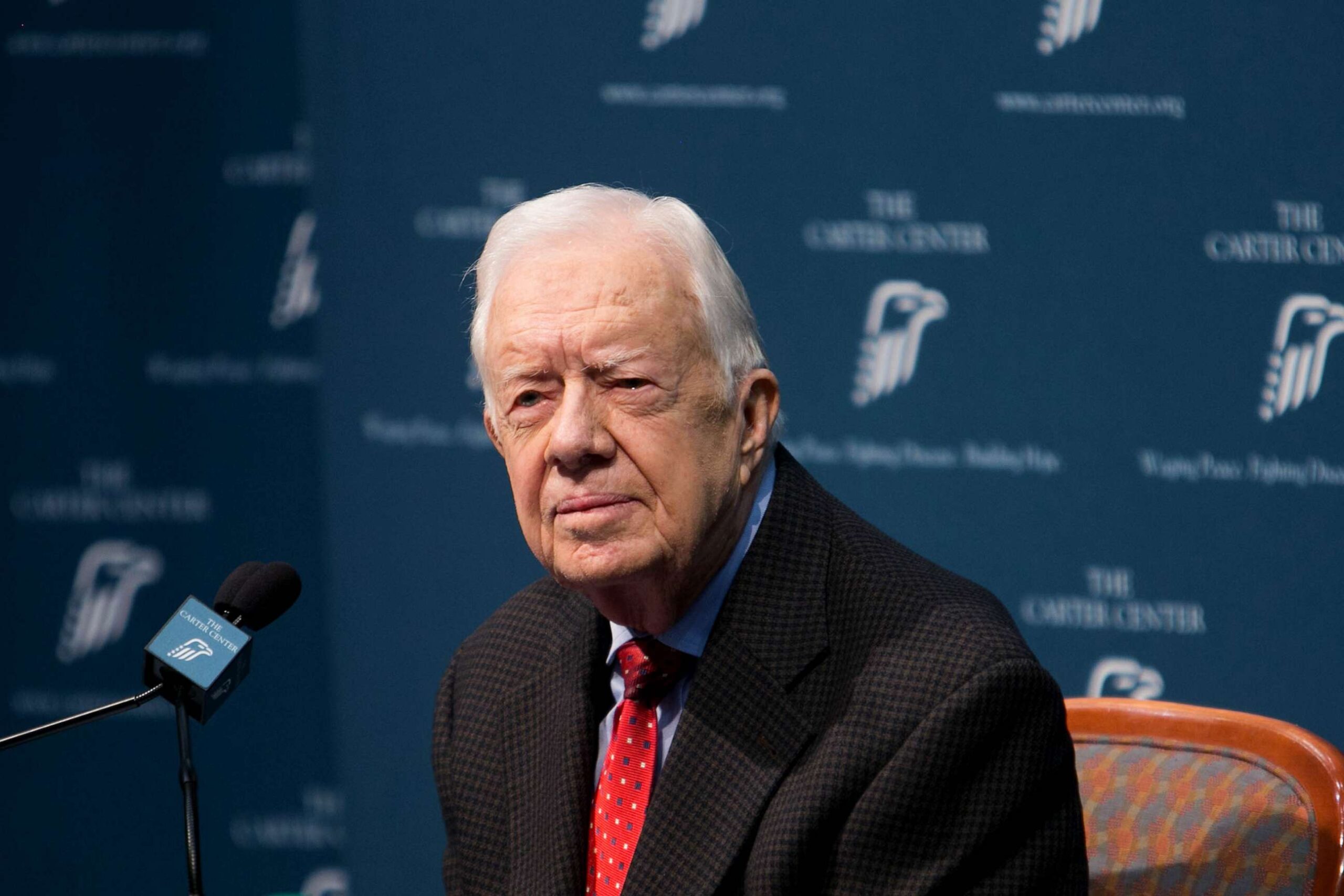Former U.S. President Jimmy Carter died on December 29 at the age of 100 in his hometown of Plains, Georgia. His lasting legacy in global health and infectious disease has made a profound impact on the world.
The peanut farmer ascended to the presidency in the aftermath of the Watergate scandal and the Vietnam War. The 39th president of the United States faced a difficult defeat after a single term. However, he reinvented life after the White House as a global humanitarian.
In a statement issued by the White House, President Joe Biden called Carter a “dear friend” who was “a man of great character and courage, hope and optimism.”
“With his compassion and moral clarity, he worked to eradicate disease, forge peace, advance civil rights and human rights, promote free and fair elections, house the homeless, and always advocate for the least among us.” President Biden said. “He saved, lifted, and changed the lives of people all across the globe.”
Carter’s Health Struggles
Carter had been receiving in-home hospice care since February 2023, following a series of hospitalizations.
Over the past decade, Carter faced several health challenges. In 2015, he was diagnosed with metastatic melanoma that had spread to his liver and brain. However, he successfully overcame the diagnosis and was declared cancer-free.
In 2019, Carter experienced a series of falls around his birthday in October, one of which resulted in a black eye, stitches, and a fractured pelvis. Once again, he made a full recovery.
Carter’s Legacy
Carter’s legacy is defined by his commitment to a “competent and compassionate” government, with lasting impacts on human rights, global peace, education, and public health. His most notable achievement as president was the Camp David Peace Accords in 1978, which brought Egypt and Israel together, stabilizing a volatile relationship. Carter also established the Carter Center in 1982, dedicated to advancing democracy and human rights, as well as public health initiatives in Africa and Latin America. His tireless efforts earned him the Nobel Peace Prize in 2002.
Carter’s presidency also saw the creation of the U.S. Department of Education in 1980, which fostered equal access to education, and he spearheaded national energy policy, establishing the U.S. Department of Energy and the National Energy Act. After leaving office, he became involved with Habitat for Humanity, launching the Carter Work Project in 1984. This annual initiative helped build and repair thousands of homes with over 103,000 volunteers in 14 countries, further cementing Carter’s legacy as a global humanitarian.
World Remembers Carter
Former President Bill Clinton and former Secretary of State Hillary Clinton released a statement on the passing Carter and remembered his legacy as a public servant.
“Hillary and I mourn the passing of President Jimmy Carter and give thanks for his long, good life. Guided by his faith, President Carter lived to serve others—until the very end,” the Clintons wrote.
President-elect Donald Trump said the nation owes Carter “a debt of gratitude.”
“I just heard of the news about the passing of President Jimmy Carter. Those of us who have been fortunate to have served as President understand this is a very exclusive club, and only we can relate to the enormous responsibility of leading the Greatest Nation in History,” Trump wrote in a social media post on Sunday.
Former President Barack Obama said in a statement that Carter “taught all of us what it means to live a life of grace, dignity, justice, and service.”
“Whenever I had a chance to spend time with President Carter, it was clear that he didn’t just profess these values. He embodied them,” Obama said.
World leaders like French President Emmanuel Macron, Canadian Prime Minister Justin Trudeau, Egyptian President Abdel Fattah el-Sisi, and many other paid their tributes to Carter and remembered his legacy.
في هذه اللحظة الحزينة، أَتَقَدَّمُ بخالص التعازي إلى عائلة الرئيس الأمريكي الأسبق جيمي كارتر، وإلى رئيس وشعب الولايات المتحدة الأمريكية.
— Abdelfattah Elsisi (@AlsisiOfficial) December 29, 2024
لقد كان الرئيس كارتر رمزاً للجهود الإنسانية والدبلوماسية، إذ ألهم إيمانه العميق بالسلام والعدالة الكثير من الأفراد والمؤسسات حول العالم للسير…
Throughout his life, Jimmy Carter has been a steadfast advocate for the rights of the most vulnerable and has tirelessly fought for peace. France sends its heartfelt thoughts to his family and to the American people.
— Emmanuel Macron (@EmmanuelMacron) December 29, 2024
Jimmy Carter’s legacy is one of compassion, kindness, empathy, and hard work. He served others both at home and around the world his entire life — and he loved doing it. He was always thoughtful and generous with his advice to me.
— Justin Trudeau (@JustinTrudeau) December 29, 2024
My deepest condolences to the Carter family,…
Very sorry to hear of President Carter’s passing. I pay tribute to his decades of selfless public service.
— Keir Starmer (@Keir_Starmer) December 29, 2024
My thoughts are with his family and friends at this time. pic.twitter.com/IaKmZcteb1






